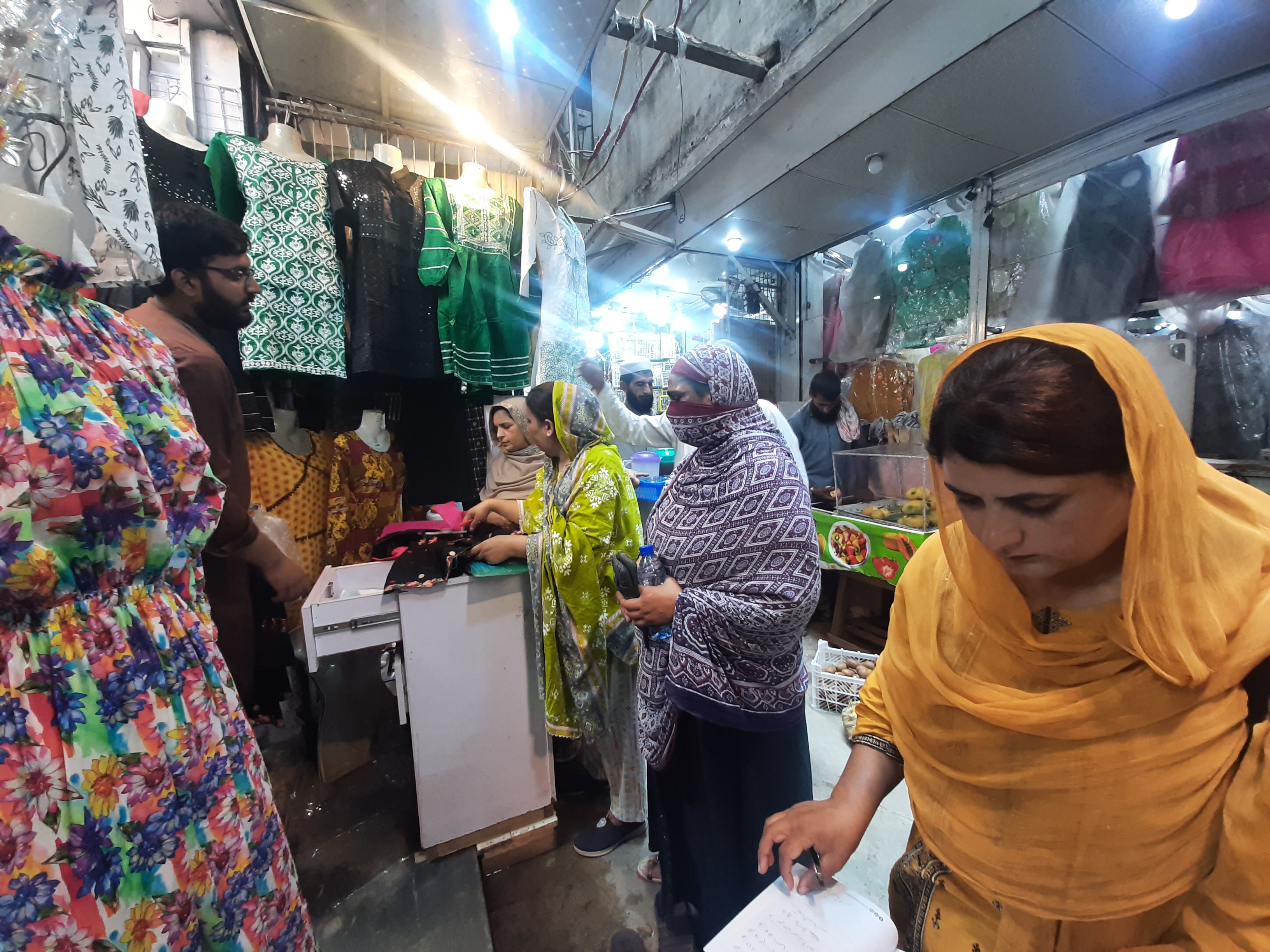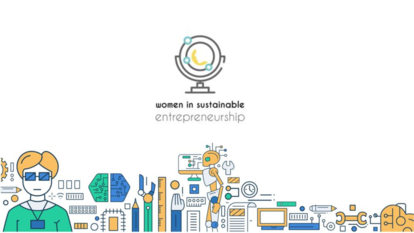IWD2023
Entrepreneurship beyond the conventional

Women Entrepreneur Participants during a field visit , Rawalpindi 2022, Institute of Urbanism
© Friedrich Naumann Foundation for Freedom - PakistanAiming to contribute to poverty alleviation and economic growth in Pakistan, harmonized with the Government of Pakistan’s objectives, Friedrich Naumann Foundation for Freedom – Pakistan (FNF Pakistan) embarked on a stimulating journey in 2021.
In collaboration with several strategic allies, FNF Pakistan designed a new stream of programs enabling economic empowerment through entrepreneurial development. A special focus of these trainings have been Pakistani women. Women represent around 48% of Pakistan’s total population, while female employment participation is only 15.5%. According to the Labour Force Survey 2020-21, conducted by Pakistan Bureau of Statistics contribution of informal female labour is around 65.5 % while that in the formal sector is merely 34.5 %. This shows a significant potential for women empowerment and engagement in various sectors.
Why women should go for entrepreneurship?
Entrepreneurship allows vulnerable groups to efficiently manage barriers to financial independence while not being limited by factors such as societal norms and mobility issues. Constraints, including but not limited to cultural and psychological, faced by female and male entrepreneurs are inherently different in nature. Additionally access to finance remains a significant barrier to entry and growth for women entrepreneurs. According to the World Bank Group’s Global Findex Report 2021, more than 1 billion women still do not use or have access to the financial system. The International Finance Corporation has estimated that worldwide, a $300 billion gap in financing exists for formal, women-owned small businesses, and more than 70 percent of women-owned small and medium enterprises have inadequate or no access to financial services.
Financial services such as payments, savings accounts, and credit are a cornerstone of development. In India, a government workfare program that reached over 100 million people showed that paying women their benefits directly into their own account (and not into the account of a male household head) increased women’s financial control, influenced gender norms preventing women from working, and incentivised women to find employment, compared with those paid in cash.[1]
Strategising its programs to work with the socially and financially vulnerable segments of society: namely the religious, ethnic and gender minorities. These are some of the most vulnerable groups in Pakistan and often suffer due to predetermined disadvantages that are most often not within their control. Due to circumstances, these groups are more susceptible to social adversity because they are economically vulnerable and cannot necessarily mobilise resources to gain equal access to their social rights. This not just impacts them on an individual level, but it also significantly hampers the national economy as well. Since a significant proportion of the society is not able to optimally use their potential and utilise the resources around them, FNF Pakistan initiated a series of entrepreneurial development programs for various groups to enable individuals to grow and become the pilots of their own lives. The programs engaged most vulnerable groups in various cities all across Pakistan as our entrepreneurship programs strived to help uplift these individuals socially and economically.
In 2021, FNF Pakistan engaged 622 women, religious and ethnic minorities through customised designed digital and in person entrepreneurial skills programs.
Scaling up business
While women entrepreneurship has grown steadily due to women being able to operate business from home environments and digital financial access increasing due to COVID-19. Facilitation within the external environment such as co-working spaces, incubators, and accelerators; women-focused competitions; trainings and networking opportunities have empowered women entrepreneurs. However the ecosystem still requires specific interventions for transformative change to transform the systematic social and psychological constraints women face in addition to bridging the gap in funding and registration for women-led start-ups.
In 2021, FNF Pakistan engaged 622 women, religious and ethnic minorities through customised designed digital and in person entrepreneurial skills programs. 53 graduates of entrepreneurial skills program were introduced into further trainings and mentorship programs with FNF and its partners. 15 participants further scaled up their businesses; applied for financial expansion and registered their companies with respective government authorities and private platforms. The tradition continued in 2022 and so far approximately 500 individuals from gender, ethnic and religious minorities engaged along with individuals with disabilities through 15 workshops under 5 training programs.

Women in Sustainable Entrepreneurship
© FNF Pakistan / Stimulus Pvt LtdOver the years our trainees have achieved milestones and competed internationally and stood out. Ms. Farah Mehboob, a participant at Building Pakistani Boss Ladies conducted in collaboration with Epiphany, won the Women Tech Network for Global AI Inclusion Award, Rising Star in STEM of the Year 2021.
In 2022 two participating businesses, Irverde – GoGreen (in the Circular Economy Category) and Asqurr (in the Empowering Women Category) were nominated for the prestigious Shell Tameer Awards 2022. Asqurr also received the Best Emerging Sellers Award at the Daraz Sellers Expo.
Ms. Nameera Irfan and Ms. Sehrish Javed met at our Women in Stem Entrepreneurship (WiSE) Boot Camp – conducted in collaboration with our strategic allies Stimulus – in Karachi and proceeded to align forces and compete in the NASA Space App Competition 2022 held in Karachi in October 2022, where they proceeded to win the first prize!
https://2022.spaceappschallenge.org/challenges/2022-challenges/climate-change/teams/agriaero/members
Our interventions show that with a little training in technical as well as soft skills, women are enabled to overcome barriers and struggle to achieve their full potential.
[1] Field et al. (2021)] - Field, Erica, Rohini Pande, Natalia Rigo, Simone Schaner, and Charity Troyer Moore. 2021. “On Her Own Account: How Strengthening Women’s Financial Control Impacts Labor Supply and Gender Norms.” American Economic Review 11 (7): 2342–75.
